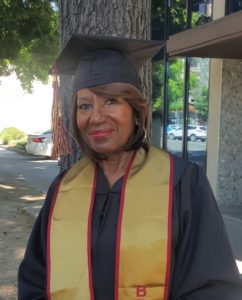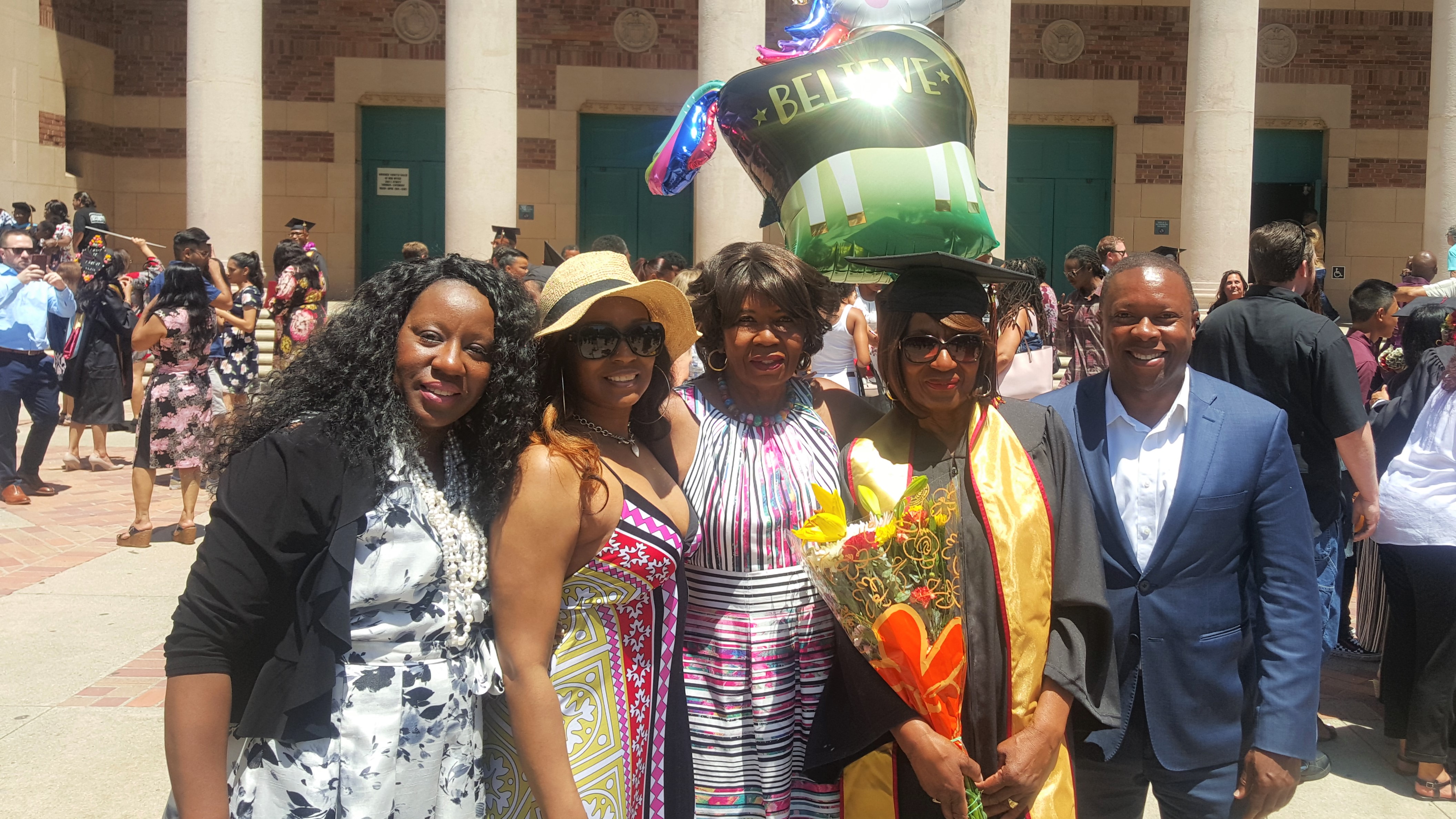Long gone are the days when you could learn a skill or a trade when you were young, and that training and education would last you a lifetime. Working for a single company, then retiring, is nearly non-existent. Right now, on average, baby boomers hold about 12 different jobs during their lifetime, with the majority of job changes happening in their young years.
With technology reshaping the kinds of skills workers need, it’s vital that education change to provide workers with the training it needs to adapt in the workplace or to land a job if they are displaced. This is all the more vital for mid-career workers who often find themselves underprepared. Embracing the idea of lifelong learning is crucial for the institution and for the older worker.
There are many pathways to lifelong learning, but one college has made it its mission to be the recognized leader in the evolution of adult learning.
“We’ve had enough experience to realize that the needs of nontraditional students are very different than the needs of traditional students. It’s almost an entirely different business model,” Gary Brahm, chancellor of Brandman University, tells WorkingNation.
Brandman, in Orange County, California, is a private, nonprofit school originally established by Chapman University in 1958 to provide educational opportunities to the now-closed El Toro Marine Corps Air Station. Since then, it’s become a separate institution, expanding its role to focus on working adults — 87 percent of students work while attending Brandman — and helping them continue the process of learning on their own time.
It’s also focused on providing the right training. “It’s really important to us that we give them the skills that they need to be successful. So, when we design a program, we work with employers to ensure that what a student knows and what they can do once they graduate is something that’s useful for the employer,” he explains.

Brandman University provides returning students with personalized support via its low student-to-advisor ratio and one-stop student services. Brahm says a single advisor will stay with a student throughout their entire enrollment, guiding them through their educational journey and helping to manage registration, financial aid, and student accounts.
He acknowledges that re-entry into academic life can be challenging, and even fear-inducing, for students who may not have attended school for decades. “Importantly, when the student first starts, they receive coaching. If you think execs need coaching, well, students returning to school, single moms especially, need that help in prioritizing their time to ensure that they can allocate it effectively.”
“The coaching and advising,” Brahm notes, are “especially important in helping them overcome that fear. It’s something that we deal with a lot and we let them know that everybody has that fear. Within a class or so, they realize they can actually do it and do it successfully. And not only does it make them feel optimistic about their chances of continuing on to earn their degree, but they feel better about themselves. It’s a wonderful transition that our students make.”
One of the most important aspects of Brandman’s curriculum is the flexibility it provides for adults who are working or raising a family. Brahm outlines three paths students can take.
“They can take classes on the ground. Our on-ground classes are actually taught blended, where they’ll take some time face-to-face, three hours one night a week for eight weeks. And then they’ll do a certain amount of it online as well. So that minimizes the amount of time they have to come to class but uses that time very effectively.”
“Or,” Brahm says, “they can take their classes fully online over that same eight-week session. So, a lot of our students will take a class on the ground and a class online. If they’re traveling for work, they can take them all online. They can vary it however it’s most effective for them.”
Finally, there’s Brandman MyPath. Brahm describes it as a “program that enables a student to move at their own pace. You can transfer in and move in at higher levels within the competencies. If there are things that you know already, you can move through more quickly as well.”
“Typically, a MyPath student might move through their general education more slowly. Some of them will work on writing and taking a little bit more time. As they get to the upper division of competencies in regard to business and other things that they’re more familiar with, they’ll move through much more quickly and get the last part done. And we’ve had people move through, even though it’s very rigorous, as quickly as a couple of years.”
All of Brandman’s programs are backward-designed with the goal of getting jobs for graduates.
“We start with, ‘What does a student need to know to get a Bachelor of Arts in Business Administration?’”, according to Brahm. “And then we work backward from there and we then validate that with employers. So, we make sure that the employers validate that we are teaching everything that’s appropriate for a student to be successful in getting a job with their degree.”

Patricia Bunts recently completed her B.A. in Applied Studies and received her diploma from Brandman in a ceremony on June 1. She is an example of the power, and the challenges, of lifelong learning. She is also a symbol of perseverance and proof that you are never too old to go back to school.
The 60-plus entrepreneur and mother of three has spent her entire life in pursuit of a degree. But it’s been a journey of fits and starts as she balanced work, family, and life with her educational goals.
“I took classes. I was working full time, raising my family, life challenges, and trying to, you know, do all that together,” Bunts tells WorkingNation. “The last time I stopped because I ended up having to start a business and it was too much responsibility for me to continue to take classes with my family and other things. So, I stopped and at that time I only needed eight classes. To be honest, I didn’t think I would really finish my degree because of the business.”
But in 2016, Bunts decided to go all-in with Brandman, something she did without telling her children. “Because I have stopped before and I wanted to make sure I finished this time. I didn’t want to, you know, tell them I’m going to do this and then I end up stopping again. So, it was just something, it was for myself.”

Brandman’s flexibility allowed Bunts to pursue her degree at its Modesto, California, campus. For the last year of her studies, she was online only. “It’s different than a classroom. I prefer the classroom, but for what I was trying to do this time, online worked better because I can, you know, do my studying at whatever is the best time for me.”
In addition to the online courses, there also were team-based projects in which she worked with other online students via text or email. Chancellor Gary Brahm says that is by design. “It’s all project-based. You will learn things and then you’ll apply them in projects that are relevant to work. Not only does your supervisor typically learn about what you’re doing, sometimes your projects are actually valuable to your supervisor, but it’s more engaging for you. It creates a much more relevant educational experience.”
Bunts credits Brandman, as well as her faith, for helping her obtain her degree. “If it weren’t for God, I would not be able to finish this degree. It was a challenge to go back after all that time, that gap. And so, I have been blessed.”
She now wants to use her experience as a lifelong learner to mentor other women by teaching them life skills and volunteering in her community.
What advice does Bunts have for others in their fifties and sixties who find themselves confronting the challenges of continuing their education? “Well, I would say that they don’t give up. If you really want to better yourself, be a lifelong learner. Technology is changing every day. And to have the ability to get the jobs and to better yourself, you need to go back to school, take some type of training, find the school that’s right for you and go for it. If you want to have a better life, get a better job. Don’t give up on your dream.”
Jeff Ryder is an award-winning journalist, writer, and digital producer. His credits include initiatives for Verizon, Penske Racing, Sprint, Sony, McDonald’s, and Rolling Stone.
A guide to the emerging educational revolution for adult learners - WorkingNation
In today's employment climate there's an abundance of stories about the increasing importance of lifelong learning when it comes to the future of work. However, there's another critical aspect of learning that is long overdue for attention - experiential learning. It's the personal learning a person accumulates over their lifetime, and traditionally it's been ignored by academics and employers.
Opportunity awaits lifelong learners in the Fourth Industrial Revolution - WorkingNation
In her Shaping the Future Workforce series, WorkingNation Executive Producer and Senior Business Correspondent Ramona Schindelheim interviews business leaders and workforce experts about innovative solutions to create skilled workers for the 21st-century economy. We are in the midst of an unprecedented global technological revolution that is changing every aspect of our lives.
How to take care of everyone without burning out - WorkingNation
Whenever I feel overextended, I think of the street performer in Venice, California, who juggles chainsaws. I am awed by the intensity with which he concentrates on each ferocious saw as he plucks it from the air. The slightest distraction and he could easily lose an arm.
Jane Oates: Talent shortage forcing 'rethink' of education system - WorkingNation
At a time when job openings now outnumber the jobless, there is an increasing focus on the roadblocks preventing underemployed and unemployed individuals from gaining new skills. WorkingNation President Jane Oates tells EdTech Times that a talent shortage, stagnant wages, and student debt are holding workers back.
© Copyright 2024 by Structural Unemployment, LLC dba WorkingNation